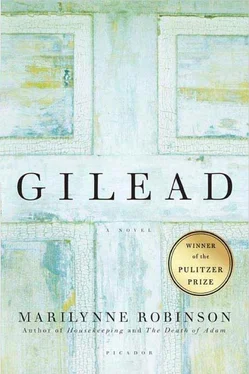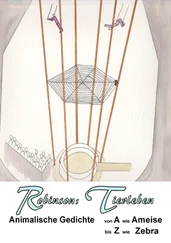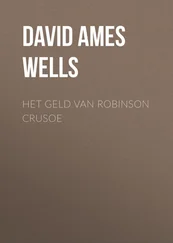Well, but I shaved carefully and put on a white shirt and buffed my shoes a little, and so on. I think such preparations can be the difference between an elderly gentleman and a codger. I know the former is a more suitable consort for your lovely mother, but sometimes I forget to go to the necessary trouble, and that’s an error I mean to correct.
And after all that, I went up to the church and waited in the sanctuary for the light to come and fell asleep in the pew, upright, which is a good thing, because young Boughton came in looking for me when he found I wasn’t in my study. I felt just the way I imagine the shade of poor old Samuel must have felt when the witch dragged him up from Sheol. “Why hast thou disquieted me, to bring me up?” In fact, I had spent the morning darkness praying for the wisdom to do well by John Ames Boughton, and then when he woke me, I was immediately aware that my sullen old reptilian self would have handed him over to the Philistines for the sake of a few more minutes’ sleep. I really despise the pathos of being found asleep at odd times in odd places. Your mother always tells people I’m just up the whole night reading and writing, and some times that is true. And sometimes I’m just up the whole night wishing I weren’t.
(I do recommend prayer at such times, because often they mean something is in need of resolving. I had arrived at a considerable equanimity, there in the dark, and I believe that is what permitted me to sleep. The problem was that I slept too deeply. The physical body can crave sleep with an animal greed, as everybody knows. Then it is snappish when it is disturbed, as I would have been if I hadn’t had the memory, at least, of praying for tranquility. At that moment I cannot claim to have had tranquility itself.)
So Jack Boughton’s first words to me were “I’m very sorry.” He sat down in the pew, allowing me time to gather myself, which was good of him. I noticed that he also was dressed with special care, that he was wearing a jacket and a tie and that his shoes had a good shine on them. He studied the room, taking in the simplicity of it, which I know is naked simplicity, not the elegant, ornamental kind you see in some of the finer old churches, since this one was always meant to be temporary. “Your father preached here,” he said.
“For a good many years. It hasn’t changed much since then.”
“It’s like the church I grew up in.”
The Presbyterians did have a church very much like this one, but they replaced it several years ago with a fairly imposing building of brick and stone. It already has a good deal of ivy clinging to it. Boughton says if he could just get them to dilapidate the bell tower a little they would have a real antiquity. He has suggested that we out-antiquate the Presbyterians by modeling our new building on the catacombs. I believe I’ll propose it.
Jack said, “It’s an enviable thing, to be able to receive your identity from your father.”
I have a dreadful habit of taking the measure of a conversation early, in terms of the pleasure or benefit I can expect from it or what I might accomplish through it, and at that point my hopes were not high. I said, “My vocation was the same as my father’s. I assume that if I’d had another father entirely the Lord would still have called me.” I’ll admit I’m a little touchy on that point.
Jack was quiet for a minute, and then he said, “I always seem to give offense. I don’t always intend to.” Then he said, “I hope you will understand that I don’t wish to offend you. Reverend.” I said, “I’ll bear that in mind.”
He said, “Thank you.” Then after a minute he said, “I wish I could have been like my father,” and he glanced up at me as though he thought I might laugh.
I said, “Your father has been an example to us all.”
He gave me a look, then covered his eyes with his hand. There were elements of grief and frustration in the gesture, and of weariness as well. And I knew what it meant. I said, “I’m afraid I offend you.”
“No, no,” he said. “But I do wish we could speak more — directly.” There was a silence. Then he said, “But I thank you for your time,” and stood up to leave.
I said, “Sit down, son. Sit down. Let’s give this another try.” So we were just quiet there for a while. He took off his necktie and wound it around his hand and showed it to me as though there were something amusing about it and slipped it into his pocket.
Finally he said, “When I was small I thought the Lord was someone who lived in the attic and paid for the groceries. That was the last form of religious conviction I have been capable of.” Then he said, “I don’t mean to be rude.”
“I understand.”
“Why would that happen, do you think? I mean, that I could never believe a word my poor old father said. Even as a child. When everyone I knew thought it was all, well, everyone thought it was the Gospel.”
“Do you believe any of it now?”
He shook his head. “I can’t say that I do.” He glanced up at me. “I’m trying to be honest.”
“I can see that.”
He said, “I’ll tell you another strange thing. I lie quite a lot, because when I do people believe me. It’s when I try to tell the truth that things go wrong for me.” He laughed and shrugged. “So I know the risk I ‘m running here.” Then he said, “And in fact, things also go wrong when I lie.”
I asked him what exactly it was that he wanted to tell me. “Well,” he said, “I believe I put a question to you.”
He had every right to point that out. He had asked a question, and I had avoided responding to it. That’s true. I couldn’t help but notice the edge of irritation in his voice, considering how earnest he seemed to be about keeping the conversation civil.
I said, “I just don’t know how to answer that question. I truly wish I did.”
He folded his arms and leaned back and twitched his foot for a minute. “Does it seem right to you,” he said, “that there should be no common language between us? That there should be no way to bring a drop of water to those of us who languish in the flames, or who will? Granting your terms? That between us and you there is a great gulf fixed? How can capital-T Truth not be communicable? That makes no sense to me.”
“I am not sure those are my terms. I would speak of grace in that context,” I said.
“And never of the absence of grace, which would in fact seem to be the issue here. If your terms are granted. I don’t mean to be disrespectful.”
“I understand that,” I said.
“So,” he said, after a silence, “you have no wisdom to share with me on this subject.”
I said, “Well, I don’t know quite how to approach it in this case. Do you want to be persuaded of the truth of the Christian religion?”
He laughed. “I’m sure if I were persuaded of it, I would be grateful in retrospect. People generally are, as I understand.” “Well,” I said, “that doesn’t give me much to work with, does it?”
He just sat there for a while, and then he said, “A friend of mine — no, not a friend, a man I met in Tennessee — had heard about this town, and he had also heard of your grandfather. He told me some stories about the old days in Kansas that his father had told him. He said that during the Civil War Iowa had a colored regiment.”
“Yes, we did. And a graybeard regiment, and a Methodist regiment, as they called it. They were teetotalers, at any rate.”
“I was interested to learn that there was a colored regiment,” he said. “I wouldn’t have thought there were ever that many colored people in this state.”
“Oh yes. Quite a few colored people came up from Missouri in the days before the war. And I think quite a few came up the Mississippi Valley, too.”
Читать дальше












